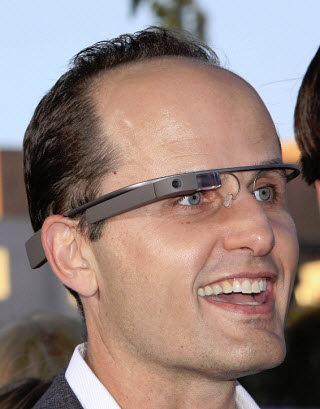A man has been treated for internet addiction disorder brought on by excessive use of Google’s wearable tech.
The man was treated by scientists and he is believed to be the first patient to have suffered from internet addiction disorder that was allegedly caused by overusing Google Glass, which the man had reportedly been using for about 18 hour every day, only removing it to wash and sleep.
The man said he felt argumentative and irritable without the wearable gadget.
In September 2013, the 31 year old man, a US navy serviceman, checked into the US Navy’s Substance Abuse Rehabilitation Program (SARP) for alcoholism treatment. For 35 days, patients who take part in the program must stay away from addictive behaviors, including alcohol, cigarettes drugs and even electronic devices.
When observing the man, the doctors noticed that he would tap his right temple with his index finger repeatedly. The man said the movement was an involuntary mimic of the action required to turn on the device. The man claimed he was going into Google Glass withdrawal. He used the device to improve his work performance. It allowed him to carry out his job faster.
It was reported that when the man first checked into the facility he was suffering from cravings, involuntary movements, memory trouble and dreaming as if he were wearing the device. By the end of the program he was less irritable, his short-term memory had improved, and he made less compulsive movements.
Internet addiction disorder and its link to Google Glass and other tech is a hot debate.
 It is a hot debate among psychiatrists whether internet addiction disorder is connected to conventional devices, such as personal computers and smartphones. Many researchers believe to this day that the effects of the disorder are only symptoms of other psychological problems. In fact, in the 2013 update to the Diagnostic and Statistical Manual of Mental Disorders, it was not included as a clinical diagnosis.
It is a hot debate among psychiatrists whether internet addiction disorder is connected to conventional devices, such as personal computers and smartphones. Many researchers believe to this day that the effects of the disorder are only symptoms of other psychological problems. In fact, in the 2013 update to the Diagnostic and Statistical Manual of Mental Disorders, it was not included as a clinical diagnosis.
However, Dr. Andrew Doan, who is the co-author of the paper on the patient, which was published in the journal Addictive Behaviors, and who is head of addictions and resilience research at the United States navy’s SARP, believes there is evidence that people suffer from the disorder.
Dr. Doan stated that “People used to believe alcoholism wasn’t a problem – they blamed the person or the people around them.” He added that “It’s just going to take a while for us to realise that this is real.” The doctor also said that while there isn’t anything “inherently bad about Google Glass” the issue with wearable tech is that while the user appears to be present in the moment, they are “almost constantly in the closet.”

